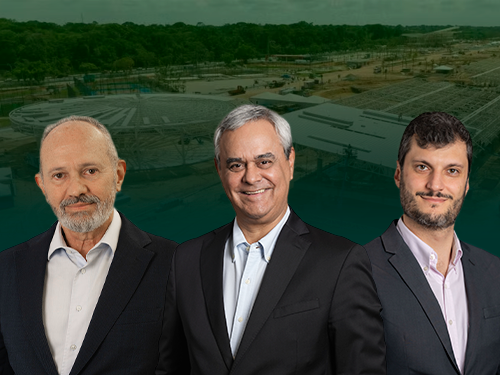No Unrealistic Expectations at COP30

*Paulo Hartung
**José Carlos da Fonseca Jr.
***Adriano Scarpa
Bringing the Climate Conference to Brazil was the right decision. Hosting COP30 in the Amazon, a natural heritage we share with eight other countries, offers an opportunity for the global environmental debate to finally come into contact with this region so often referenced around the world. Leaders who for years have spoken from a distance may finally have the chance to see up close the object of their rhetoric.
Another important step was to choose, not without some delay, a team widely recognized as qualified to lead the initiative. Under the direction of Ambassador André Corrêa do Lago, an experienced and respected diplomat, and with Ana Toni, a constellation of brilliant envoys and collaborators was assembled.
One point of attention is the extremely challenging context that surrounds us and directly impacts what we aim to deliver. It is essential to align expectations with what can realistically come out of the next Climate Conference.
It is striking how much the international scenario has changed since Belém was announced as the host of COP30. The first half of 2025 is already marked by rare instability on multiple fronts, from a tariff war to dangerous conflicts unfolding in the Middle East and Europe. The withdrawal of the United States from the Paris Agreement is yet another example of backsliding.
This is the delicate and uncertain context we find ourselves in. Besides being an economic powerhouse, the United States is one of the world’s top CO₂ emitters. No country or economic bloc will be able to fully replace it in the global climate debate. On top of that, Europe, traditionally a source of environmental donations and financing, now faces growing responsibilities for its own robust defense budgets.
A side note here: Brazil will arrive at COP30 in a moment of domestic fragility, with a fiscal crisis, political instability, and the early kickoff of the 2026 election cycle.
We cannot ignore the shadow that looms over COP30. It stretches from the road to Belém into the following year, when the global agenda will still be in Brazil’s hands.
The sense of failure at recent conferences does not come from a lack of targets, but from a lack of action. The gap between what is signed and what is delivered needs to be urgently bridged. Just look at the small number of Nationally Determined Contributions (NDCs) that have been updated, even though this is a commitment made by all.
It is important to recognize that, along the way to Belém, initiatives like the COP30 Local Leaders Forum and the programming being planned by the business community through SB COP30 are gaining importance.
All of this raises our challenges as hosts. We should not feed unrealistic expectations that may lead to frustration. To lead is to have the maturity to understand that the 2025 COP, ten years after the Paris Agreement, must be a solid bridge to help us move forward on an unavoidable path: confronting the climate crisis and renewing multilateralism, which has taken a beating in recent times.
*ECONOMIST, PRESIDENT OF THE BRAZILIAN TREE INDUSTRY (IBÁ), FORMER GOVERNOR OF THE STATE OF ESPÍRITO SANTO
**AMBASSADOR, CEO OF EMPAPEL AND THE FAO ADVISORY COMMITTEE ON SUSTAINABLE FOREST-BASED INDUSTRIES (ACSFI)
***ENGINEER, MANAGER FOR CLIMATE CHANGE AT IBÁ, DIRECTOR OF THE MINAS GERAIS SOCIETY OF ENGINEERS
Published on: O Globo

